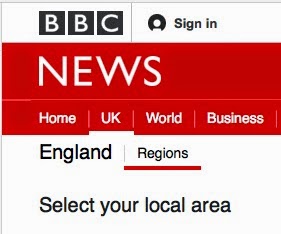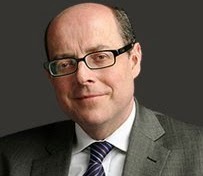Cleared Sun executive editor Fergus Shanahan, interviewed by Press Gazette: “It’s been a very barren, painful and miserable existence.”
The Times [£] in a leader: "Journalists are citizens. When they break the law they should be prosecuted. But when successive juries in long, complex and colossally expensive cases refuse to convict them, those pressing charges should pay attention."
The Daily Mail: "For its part, the Metropolitan Police has taken the default position of treating suspects like gangsters. And certainly no sign of retreat by the zealots at Hacked Off, who want State-backed Press regulation. The result? It was rather eloquently put by defence barrister Trevor Burke QC. He said: '(The) very worrying trend is that journalists that only report the news accurately, honestly and fearlessly now face being prosecuted in our criminal courts. 'You might be aware of events in Moscow . . .where free Press has long ceased to exist. It never did in China.' He said a public interest approach was paramount: 'It is the very basic function of a journalist in a free society to report the news without fear or failure. To expose hypocrisy and to reveal the truth.' The jury agreed. Operation Elveden has become a national shame. The runaway train has to be stopped."
The Sunday Times [£] in a leader: "Our significant, if not total, libel victory [over Peter Cruddas] was followed by the acquittal of four journalists from The Sun on Friday on charges of encouraging misconduct in public office by paying civil servants. Our experience in the libel courts was that victory came after a long and costly battle. The wave of prosecutions of recent years is affecting the way journalists do their jobs. Freedom to report what is in the public interest and to expose wrongdoing is vital. We need to ensure that it is preserved."
The Guardian in a leader: "The relationship between source and reporter is complicated enough without adding the element of moral compromise which is introduced by handing over money. If payment is involved, it is strongly arguable that this should be declared at the time of publication. This may be an area on which the new press regulator Ipso might wish to issue guidelines. Meanwhile there needs to be a clear and consistent public interest defence to the entire battery of laws aimed at journalism, including official secrecy."
Richard Littlejohn in the Daily Mail: "This was part of the concerted campaign to control the flow of information and bring the Press to heel. The Gestapo tactics have been a monstrous abuse of police powers. Journalists have been dragged from their beds at dawn, their homes ransacked, their families intimidated."
Alan Rusbridger on the Guardian: "We are delighted the Supreme Court has overwhelmingly backed the brilliant 10-year campaign by Guardian reporter Rob Evans to shine daylight on the letters Princes Charles has been writing to ministers. The government wasted hundreds of thousands of pounds trying to cover up these letters, admitting their publication would ‘seriously damage’ perceptions of the Prince’s political neutrality. Now they must publish them so that the public can make their own judgment. This is a good day for transparency in government and shows how essential it is to have a fully independent judiciary and free press."
Kelvin MacKenzie in the Guardian: "During my 12 years as Sun editor I am sure minorities – and even majorities – were maligned. Editors think they know everything, that they have an umbilical cord to the thought processes of readers. They simply don’t."
John Plunkett @johnplunkett on Twitter: "New BBC News website has 'find local news' button. Much more of this, may need 'find local newspaper' option."
Kath Viner on being appointed editor-in-chief of the Guardian: "I intend to lead a media organisation that is bold, challenging, open and engaging. It will be a home for the most ambitious journalism, ideas and events, setting the agenda and reaching out to readers all around the world.”
Mike Lowe @cotslifeeditor on Twitter: "Rather relieved that the Clarkson Rule wasn't in place back in the days when I was editing newspapers."
Piers Morgan @piersmorgan on Twitter: "If he'd stuck to just punching me, he'd have been fine." #Clarkson
Jeremy Clarkson in the Sunday Times [£]: "I adore tabloid newspapers. Anyone can say, 'Mr Paddy Ashdown, leader of the Liberal Democratic party, today admitted to an extramarital affair.' But it takes a special type of wit and brilliance to come up with 'It’s Paddy Pantsdown' and cover the whole damn thing in three words."
Or in five words, like this...
























